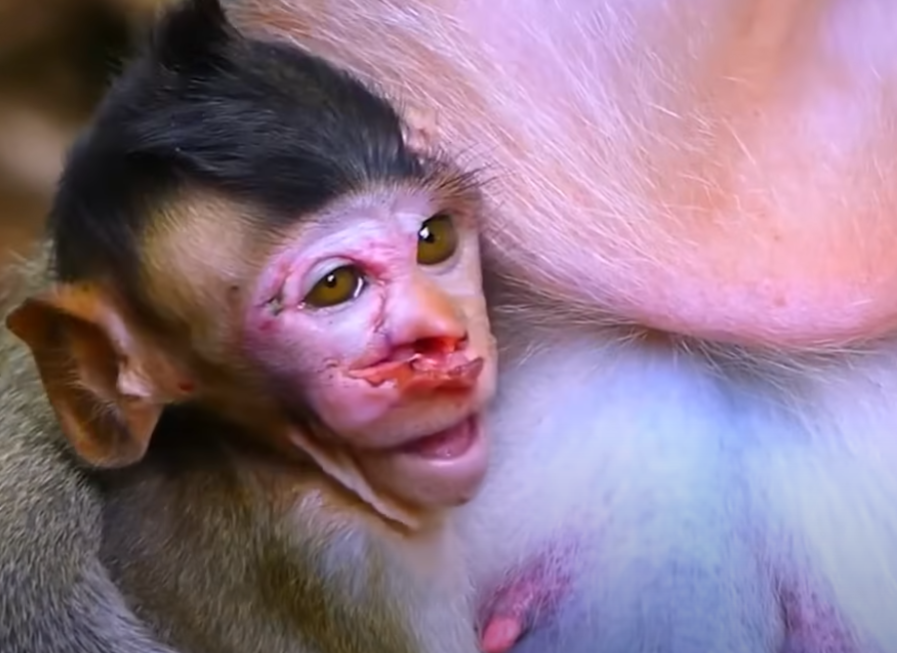A Morning Like No Other in Angkor Wat
It began like any other quiet morning in the sacred jungles of Angkor Wat. The sun was barely peeking over the treetops, casting long, golden shadows across the ancient stones. Birds chirped lazily, and the forest felt still — peaceful.
But that peace was shattered by the softest, saddest sound I’ve ever heard.
A tiny cry. Almost too faint to catch. But it was there — trembling and broken, like a whisper from a soul too young to understand the pain it was in.
I followed the sound through the forest. And then I saw him.
Curled Up and Alone
There, beneath a tangle of roots, was a baby monkey no older than a few weeks. His fur was dusty, his belly sunken. His small body trembled with each breath, as if it took every ounce of his strength just to keep going.
One arm clung tightly to a branch, not for climbing — but for comfort. His eyes were half-closed, glassy with exhaustion. There was no mother nearby. No troop. No safety. Just one tiny soul, crying out because the world had become too big, too cruel, too soon.
His name, I later learned, would be Milo. But in that moment, he was just a silent question:
“Why did this happen to me?”
A Mystery with No Words
No one knows exactly what separated Milo from his mother. Some say the troop panicked after a loud noise — and in the chaos, Milo was left behind. Others believe his mother may have fallen ill, or worse, and never returned.
But in the end, the reason didn’t matter.
What mattered was Milo was alone. And he didn’t know why.
He kept lifting his head now and then, scanning the trees, letting out those soft, broken chirps — the way baby monkeys call for their mothers. But no call came back.
He was too small to search. Too young to know how to survive. Every minute he spent alone was a battle between hope and heartbreak.
Watching, Helpless and Hurting
I wanted to rush forward, scoop him up, and carry him to warmth and food. But I knew sudden movements could frighten him. And I didn’t want to scare him any more than life already had.
So I stayed close, quietly watching from behind a tree. Other tourists passed nearby — most unaware of the tiny tragedy unfolding just feet away.
His little fingers gripped the earth like he was trying to hold himself in place. His breathing slowed. At one point, he even curled into a ball — too tired to cry anymore. It was as if he knew: his mama wasn’t coming back.
A Spark of Hope
Just when it seemed like Milo might give up, something incredible happened.
From deeper in the forest came the gentle rustle of leaves. Another monkey — an older female — appeared. She had likely been foraging nearby and heard Milo’s soft cries.
Cautiously, she approached.
Milo didn’t move at first. He was weak. Unsure. But when she reached out and gently touched his back, he let out a single, broken chirp — and then collapsed into her arms.
She wasn’t his mother. But in that moment, she became the next best thing: someone who cared.
Why This Moment Matters
There are thousands of monkeys in Angkor Wat. Many are loved. Some are injured. And a few, like Milo, are forgotten too soon.
But moments like this — where nature shows compassion, where life clings to life — remind us of something powerful:
Even the smallest cries deserve to be heard.
Watch the moment Milo’s soft cry is answered — a turning point that will stay in your heart forever.
A quiet image of baby Milo, just before help arrived. A face you won’t forget.

